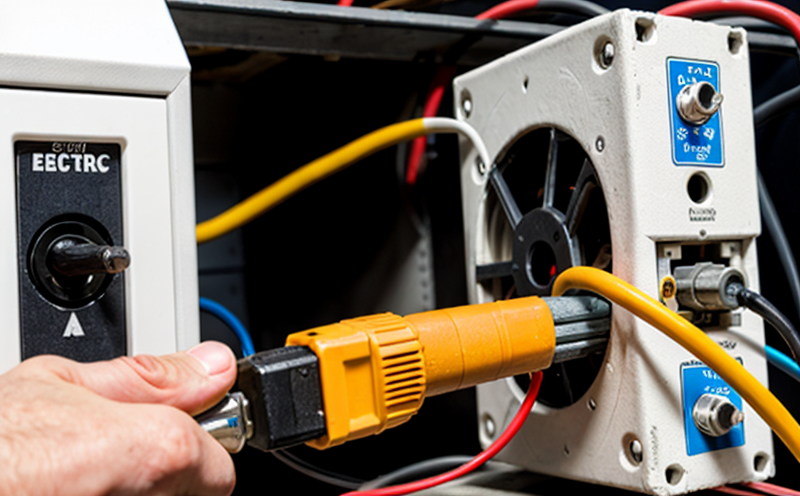IEC 60204-1 Electrical Safety of Machinery
The International Electrotechnical Commission (IEC) Standard IEC 60204-1 is a critical benchmark for ensuring the electrical safety of machinery. This standard provides comprehensive guidelines to manufacturers, designers, and operators on how to ensure that equipment does not pose an electric shock hazard or cause other electrical injuries during its intended use.
IEC 60204-1 focuses on the design, construction, installation, operation, and maintenance of machinery. The standard covers various aspects such as insulation coordination, protective measures against electric shocks, protection from overvoltage, and protection against dangerous temperatures. It also addresses the safety requirements for equipment under normal conditions of use and in abnormal situations.
The primary objective of this standard is to minimize the risk of electrical accidents by setting clear guidelines on how to design machines that are safe for human interaction. By adhering to these standards, manufacturers can ensure their products meet international safety criteria, thus enhancing trust among customers and ensuring compliance with legal requirements in different regions.
This standard applies universally across various sectors including manufacturing, construction, automotive, and industrial processes where machinery plays a crucial role. Its wide applicability makes it an essential tool for quality managers, compliance officers, R&D engineers, and procurement teams who are responsible for ensuring safety standards are met throughout the product lifecycle.
Adhering to IEC 60204-1 helps organizations achieve several benefits including enhanced reputation through consistent adherence to global safety norms, reduced liability risks associated with non-compliance, improved reliability of machinery leading to lower maintenance costs, and increased operational efficiency by preventing downtime due to electrical incidents.
- Enhanced product reputation
- Reduced liability risk
- Improved machine reliability
- Lower maintenance cost
- Increased operational efficiency
- Compliance with international standards
The testing process under IEC 60204-1 involves rigorous evaluation of machinery to ensure it meets all specified safety criteria. This typically includes electrical insulation tests, protection against overvoltage and dangerous temperatures checks, and assessment of protective measures against electric shocks.
During specimen preparation, the machinery is first calibrated according to the standards outlined in IEC 60204-1. The specimens are then subjected to various tests that simulate real-world operating conditions. These tests may include voltage stress testing, insulation resistance measurement, and leakage current evaluation among others.
The use of appropriate instrumentation is crucial for accurate results during these evaluations. Instruments such as megohmmeters for measuring insulation resistance and clamp-on ammeters for monitoring currents are commonly used tools. After completing all tests, detailed reports are generated which document every aspect of the testing process and provide recommendations based on findings.
These comprehensive reports serve multiple purposes including serving as evidence during audits or inspections, providing guidance to manufacturers regarding necessary modifications if any deficiencies were identified in initial evaluations, and acting as reference materials for future projects involving similar types of machinery.
- Rigorous evaluation
- Calibration according to IEC 60204-1 standards
- Voltage stress testing
- Insulation resistance measurement
- Leakage current evaluation
- Use of appropriate instrumentation like megohmmeters and clamp-on ammeters
- Detailed report generation
In conclusion, compliance with IEC 60204-1 ensures that machinery is designed and manufactured safely. It helps protect users from potential electrical hazards while maintaining high standards of quality and reliability.
Benefits
- Enhanced product reputation
- Reduced liability risk
- Improved machine reliability
- Lower maintenance cost
- Increased operational efficiency
- Compliance with international standards
Why Choose This Test
- Ensures adherence to global safety norms
- Reduces liability risks associated with non-compliance
- Improves reliability of machinery leading to lower maintenance costs
- Increases operational efficiency by preventing downtime due to electrical incidents
- Promotes trust among customers through consistent meeting international safety criteria
- Achieves compliance with legal requirements in different regions ensuring safer working environments
International Acceptance and Recognition
The IEC 60204-1 standard is widely recognized and accepted across numerous countries around the world. Many nations incorporate this standard into their national regulations, further emphasizing its importance in ensuring electrical safety within machinery.
Countries like USA, Canada, Europe, China, India, Japan, South Korea, Australia, New Zealand, and many others have adopted IEC 60204-1 as a benchmark for evaluating the safety of various types of machinery. This widespread acceptance underscores its significance in promoting consistent standards globally.
Adopting this standard not only ensures that your products meet international requirements but also opens up opportunities for exporting to these markets without facing additional barriers such as differing local regulations or certifications.





